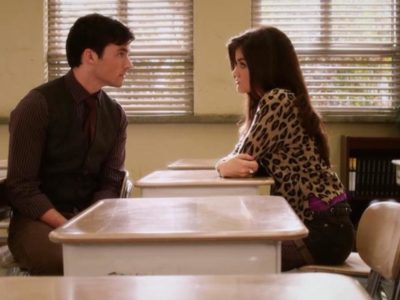When Ben Frisch, a high school teacher at Manhattan school Friends Seminary said, “Heil Hitler,” during his pre-calculus lecture on Valentine’s Day this year, the school was immediately thrown into a fit of controversy. University of Florida faculty member Alyson Adams said, the whole situation was a powder keg. However, learning opportunities should be built out of mistakes like these.
Ayson Adams, the associate director of teaching and learning at the University of Florida, has much to say about Ben Frisch’s fate and the reactions of students at Friends Seminary. Get out your popcorn.
“I think we have entered a world where there is so much that is offensive that people have become very polar in their reactions,” said Adams. “I can see the viewpoint that parents are paying for this private school, and want the environment to be respectful and academic both. However, the world is full of incidents that offend and push. I do wish people would think a bit more about their words and actions.”
Parents at the school threatened to withdraw their children from the school if action was not taken against Ben Frisch.
He received multiple angry phone calls and strongly-worded messages vying for his resignation. What started as a terribly awkward job became a threat to his career.
“Those are the same parents who have too much time and money on their hands to know what to do with,” said University of Florida sophomore Daniel Gonzalez. “Issues like this are prime examples and opportunities to allow a child to grow and develop a consciousness for their surroundings, not to be taken away and sheltered from real-world issues.”
Adams added that while Frisch’s actions were certainly wrong, the aftermath of the event was dealt with wildly incorrectly. Gonzalez strongly agreed.
Frisch was given a choice by the the school board and Friend Seminary’s principal, Bo Lauder. Frisch He could resign, or face losing his job. On March 7, Frisch was fired. Frisch chose to be fired.
Since then, the school has been in uproar. Students and supporters of the teacher claimed that the firing of Frisch, a practicing Quaker great-grandson of two Holocaust victims, was inherently anti-Semitic. Frisch himself opened a grievance process against fighting the school’s decision, arguing against his wrongful termination. Students now roam the Friends Seminary hallways sporting “bring Ben back,” pins.
Adams believes that the administration in place failed the students at Friends. She said conversations from the faculty about why Frisch’s actions were wrong would have served the students better. More writing, thinking and talking from the students would have more of an impact on Frisch’s punishment. According to her, Frisch may not have deserved to be fired, but the students deserve a better reaction from their administration in the fallout.
A majority of the controversy exists because Friends is a private school in New York City. Reason for the outrage against Frisch is explained by the $45,000 in tuition students must pay to attend the school. Adams said that had this happened at UF, or any other public school in Alachua county, the spotlight may not glare as heavily upon the accused.
“Firing him was the correct thing to do, especially if it was a private school. Things should be more regulated there; the parents are paying after all. Your liberties are limited when you work with children,” said UF sophomore Victoria Kowalczyk.
The New York Times article revealing the incident stirs up many questions involving what high school teachers and university professors can and cannot do. Johnathan Maler, the author of the report, brings up the idea that educational environments like college serve to challenge the mindsets of those attending. The same, he said, cannot be applied to high school.
“I think college is where a student should find and challenge their own mindset,” said Gonzalez. “The difference is that if a student doesn’t want to change their way of thinking, they won’t change their way of thinking. It has to come from the student, college is just a place where it is easier to find situations that challenge what you know, what you believe, and how you process situations.”
Frisch’s arbitration hearing took place on Aug. 14. Former Friends students accused Frisch of inappropriate touching and another inappropriate comment, where Frisch allegedly told a student to, “go outside and kill himself.” Frisch denied both of these claims.
Frisch’s actions and the accusations against him bring up yet another topic: safe spaces in school.
Adams said, “I use a rubber band analogy with my students. The rubber band is only useful when gently pulled and stretched. If it is kept unstretched, it is useless and cannot perform its task. If it is pulled too hard, it breaks, it hurts the user and it is never useful again. I tell my students that it is an analogy for learning, and it is my job as their teacher to gently stretch them so they can learn, but to make sure they don’t snap or break. But if I keep things too ‘safe,’ there is very little learning happening,” Said Adams said.
UF faced a similar issue in 2015 when a White Student Union page was popped up on created on Facebook under the university’s name. This threatened the The concept of safe spaces in schools was challenged. The page was highly criticized by UF’s student newspaper, the Independent Florida Alligator, for mocking the concept of safe spaces online. The page still remains up on Facebook, inactive.
A report on the Academic Freedom of Professors and Institutions by the American Association of University Professors outlines that university professors are meant to adhere to the Professional Standard.
The report states, “Teachers are entitled to freedom in the classroom in discussing their subject, but they should be careful not to introduce into their teaching controversial matter that has no relation to their subject.”
As of today, Frisch has his job back.



















